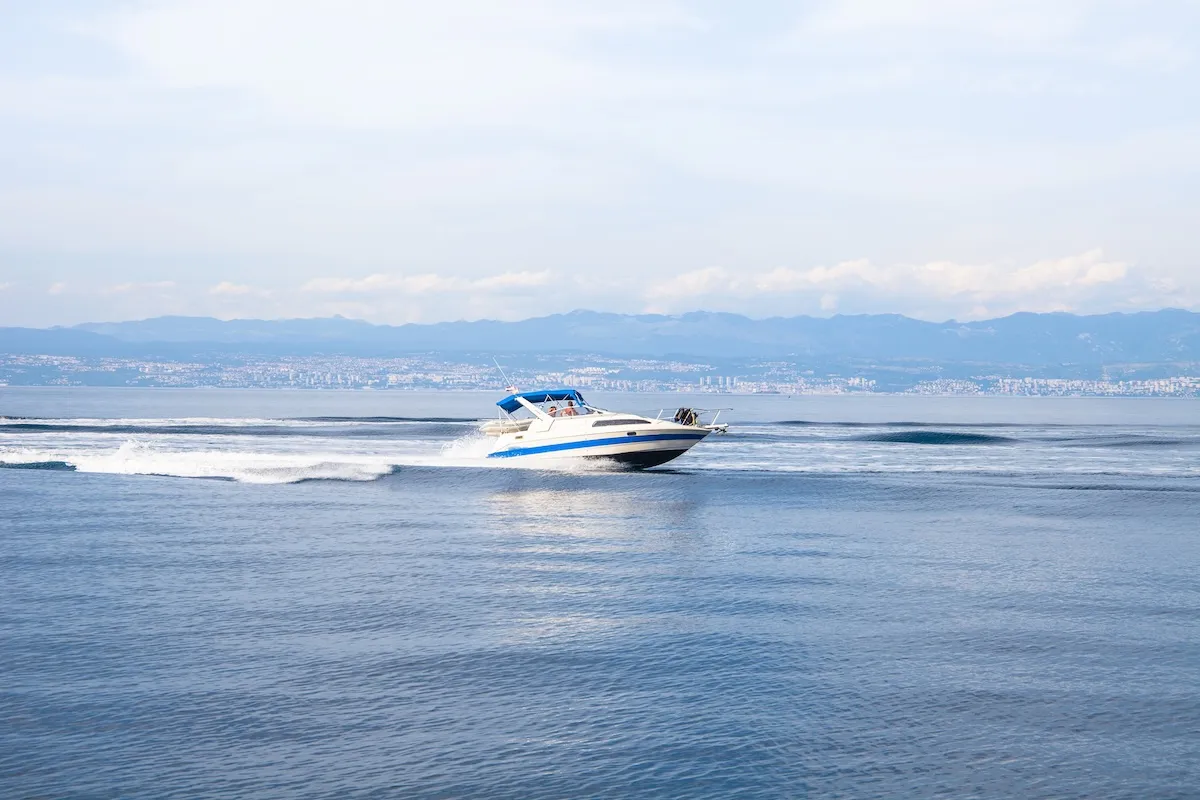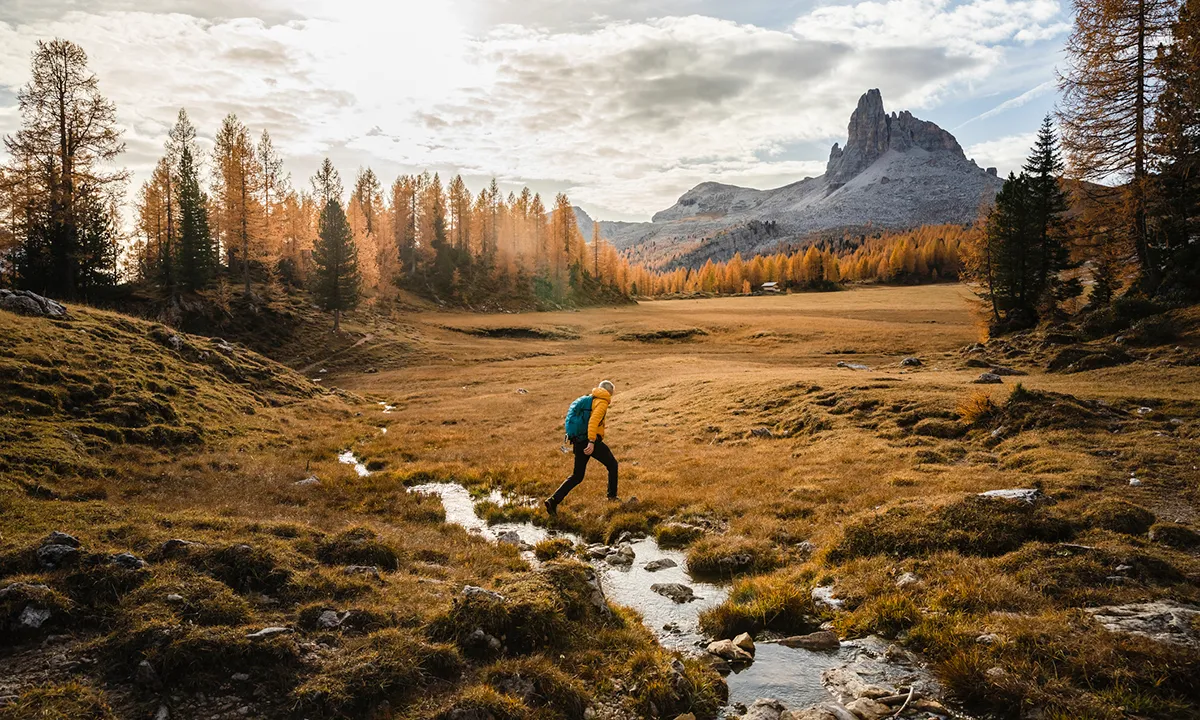

Alice is a solo travel expert and has traveled to 6 continents and been to more than 30 countries. Some of her adventures include hitchhiking in South Africa, living in a forest in Bulgaria, solo island hopping in Greece, and riding in a hot air balloon across Cappadocia, Turkey.
If your desktop background is Angkor Wat or the Roman Colosseum but you’re frustrated that you can’t seem to find a friend interested in embarking on your dream adventures, then maybe solo travel is for you.
But like all new things, it can be scary to try solo travel for the first time. But traveling alone is one of the most rewarding ways to explore a new place, so to help you overcome that first-time solo travel anxiety, we’ve compiled a list of 25 actually helpful trips for solo travel that will equip you with all the knowledge of an expert for your first incredibly awesome solo trip.
Videos by Outdoors
1. Do some research
It might sound basic, but it’s worth spending some time browsing the internet about the destination you’re going to. Basic research includes looking up local currency conversions, transport to and from the airport into the city, whether you will need local cash on top of your cards, whether there is internet access, the address of where you will stay, and how to get there. It’s best to do your research before you’re standing in the airport jet-lagged with spotty wifi dying for a nap.
It’s worth noting in the age of information, that travel books can often have more specific and helpful tips about your destination. Head over to your local bookstore and browse the travel section or pick up a pocket travel guide from a notable brand like Lonely Planet or Rick Steves. You can even rip out pages instead of carrying the whole book. If your phone isn’t working and you get stuck, guides often have maps, addresses, and helpful locations listed.
2. Plan where you’ll stay
I recommend booking at least 3 nights at your first location just to ease yourself into a new city unless you have a rigorous city-hopping trip planned. You might be the kind of person that loves to fly by the seat of your pants, but I recommend at least knowing where you’re going to sleep that first night.
3. Always read the bad reviews
Accommodation can sometimes be dodgy and owners are getting smarter with manipulating images with Photoshop. Always check the bad reviews to envision the worst-case scenario and check the date of the review. Is it recent? That 5-star review may have been from 5 years ago.
4. Book near the airport if you’re arriving late
If you’re arriving in a new city late at night, it might be better to book accommodation close to the station or airport, even if it’s a bit more expensive in case public transportation isn’t running or taxis are scarce. It may even be necessary for a less traveled location to book private transport in advance, and it might even save you money.
If you’ve already booked accommodation, your host can usually provide advice. Saving yourself the extra stress will be worth it in the long run, not to mention the extra rest if you’ve just come off of a long-haul flight.
5 . Research the distance between accommodation and attractions before booking
We’ve all booked that hotel that said ‘city center’ and ended up five miles out of town with limited public transport. Choosing a few attractions you won’t want to miss in advance, means you can check the distance between them and your accommodation options, so you don’t spend too much time just getting places.
Google Maps offers public transportation planning to guide you. But be aware that in some countries Google is not always correct. Local transport may not be linked to Google Maps so make sure to also perform a quick internet search.
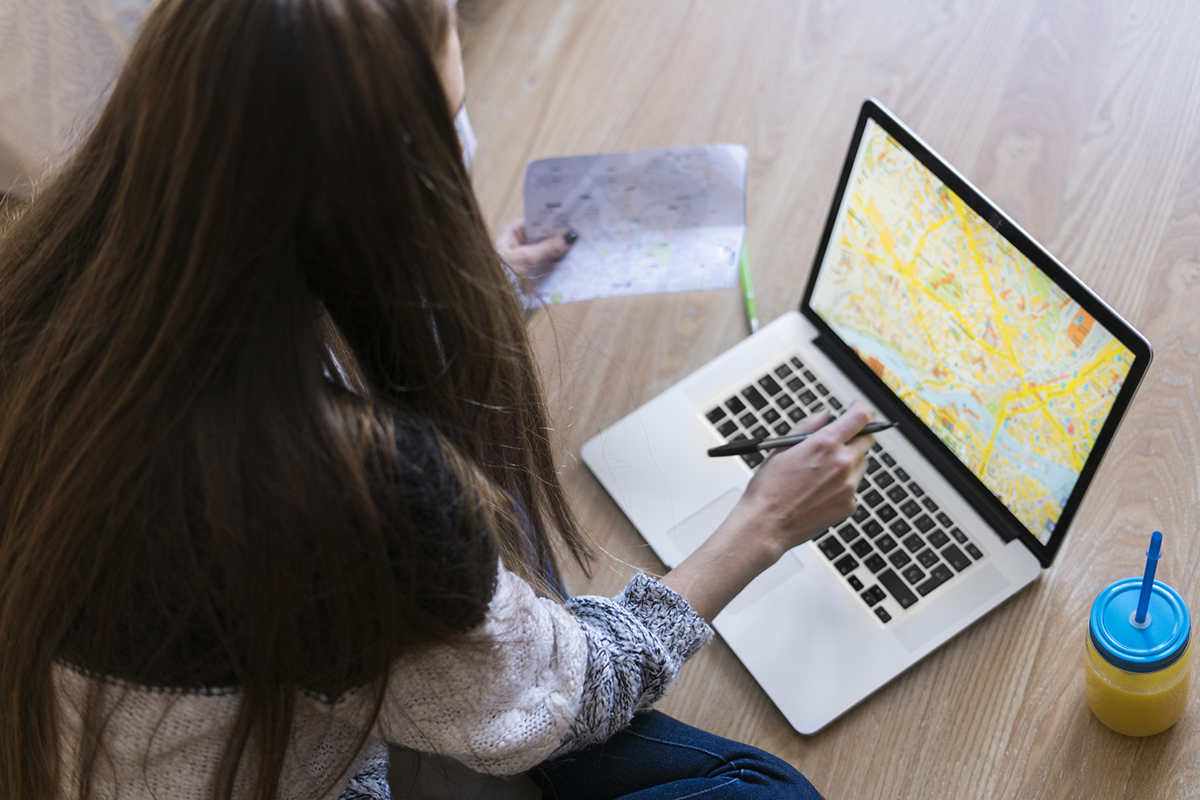
6. Stay in a community-minded place like a hostel or homestay
Alternative accommodations to a hotel offer more chances to meet people. Try a homestay, look for short-term room rentals in an apartment, stay in a hostel, stay in a community-style bed and breakfast, or couch surf. Hostels are typically great options for solo travelers wanting to meet other travelers with shared rooms and tons of community spaces but always watch out for thieves in public spaces and lock your valuables away.
7. Don’t over-pack
Try to keep your bag down to essentials. Make sure to leave room in case you want to bring something home too! Try not to overpack because you’ll have to carry it all on your own. Depending on your destination, there may not be nicely paved roads or door-front taxis available. I’ll never forget lugging my huge roller bag two miles uphill on a cobblestone road in Plovdiv, Bulgaria with no Ubers in sight.
8. Bring your meds (please) and a first-aid kit
It might sound obvious but bring those prescriptions (in the bottle always to avoid problems at borders) and a basic first aid kit including everything you might need if you feel sick, dizzy or have a splitting headache on your journey.
9. Buy a local SIM card
If you’re headed to a place where your phone won’t work or it costs $10 a day for data, buy a local SIM card so you don’t have to rely on finding scarce Wi-Fi. You can often buy them in airports, or downtown at a supermarket or electronics store. If you can’t find one or just don’t want a sim card, then use Wi-Fi to download offline maps for your journeys and write down the names/addresses.
10. Split and hide your cash and cards
Invest in a hidden wallet so people can’t see your valuables or just put your money and cards in your shoe or bra. Always split up your cards and cash so if your wallet gets stolen, you have a backup.
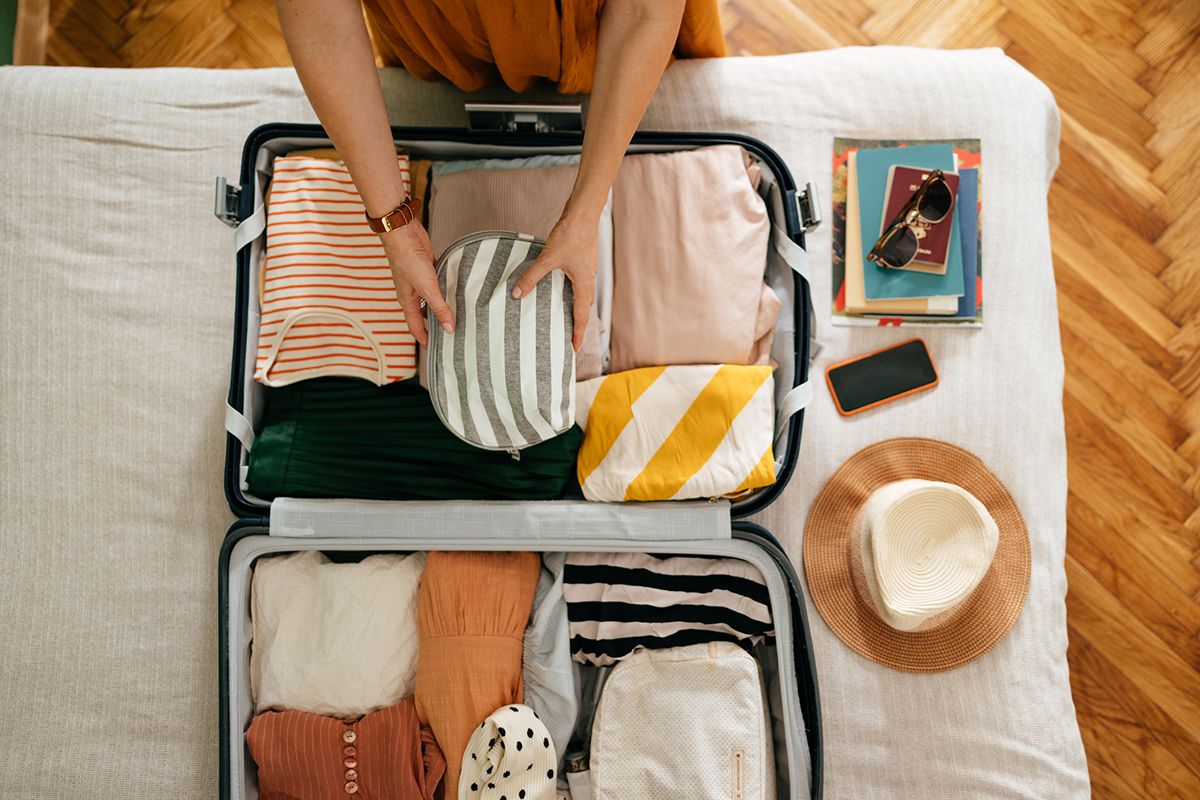
11. Bring backup copies of important documents
Make photocopies of all your important documents, and don’t keep all your valuables in the same place. Upload a photocopy to your email or the cloud just in case.
12. Get travel insurance
If you’re traveling to a country that doesn’t have free health care, it’s a great idea to get some cheap travel insurance. There are a variety of travel insurance providers, choose the one that most meets your needs. Consider things like health, theft, expensive electronics, and missed flights. Many popular credit cards already provide some travel insurance, so check your policy and make sure you don’t pay double.
13. Tell people where you’re going
Remember 127 Hours? Tell your family and friends where you are, especially if you are going to a remote location in case of an emergency. Use Find My iPhone if you’re an Apple user or share your live location. You can also save your emergency contact as ICE in your phone if you don’t have a passcode (but you should probably have a passcode).
14 Just say “No”
If you don’t want to do something or go somewhere with a stranger, don’t do it. Traveling alone is not the time to be polite. Revel in the fact you’ll never see those people again and just say no. It can also be comforting to save local help numbers, such as the tourist police and consulate or embassy in your phone.
15. Research local scams & dangers beforehand
When I arrived in Guilin, China alone, a taxi driver tried to charge me around $100 for a taxi. Luckily I had been tipped off by a local and knew that the drive should only cost $5. After five grueling minutes of going back and forth, they finally gave in and we began the $5 drive. Research common travel scams as well as location-specific scams and be prepared to stand your ground.

16. Buy a language book, use an app, or learn a few key phrases
Life is a lot easier when you can say “hello”, “thank you” and “no.” Learning a few local phrases can go a long way toward feeling more comfortable and in control in a very new environment. Some apps can even translate as you speak but may rely on you having an internet connection.
17. Go to free events and on free tours
Your host or accommodation provider will often know of events, free tours, and low-cost attractions. Ask them for tips. Going to free events and on free tours is not only a great way to meet new people but also allows you to discover local secrets and hidden spots.
18. Ask for help instead of using your phone
It might be tempting to use Google to find your way home, but for the sake of adventure, try asking for directions or asking where to buy something you’re looking for instead of using your device. It’s a great way to immerse yourself in the culture and meet locals.
19. Download maps or note key details before you leave
I’ve made this mistake more times than I can count. Before you risk losing service or internet, make sure you write down all the addresses and phone numbers you might need. In many countries, 5G is not available and you may need to rely on old-school methods to navigate.
20. Get tips from locals instead of Google
As a solo traveler, you’ll meet more travelers and locals than if you were to travel with a partner. Ask a fellow traveler about the best thing they’ve done so far. Ask the people you meet or the concierge at your hostel or hotel about their favorite place or somewhere they recommend. That’s way better than a Google search, even in 2023.
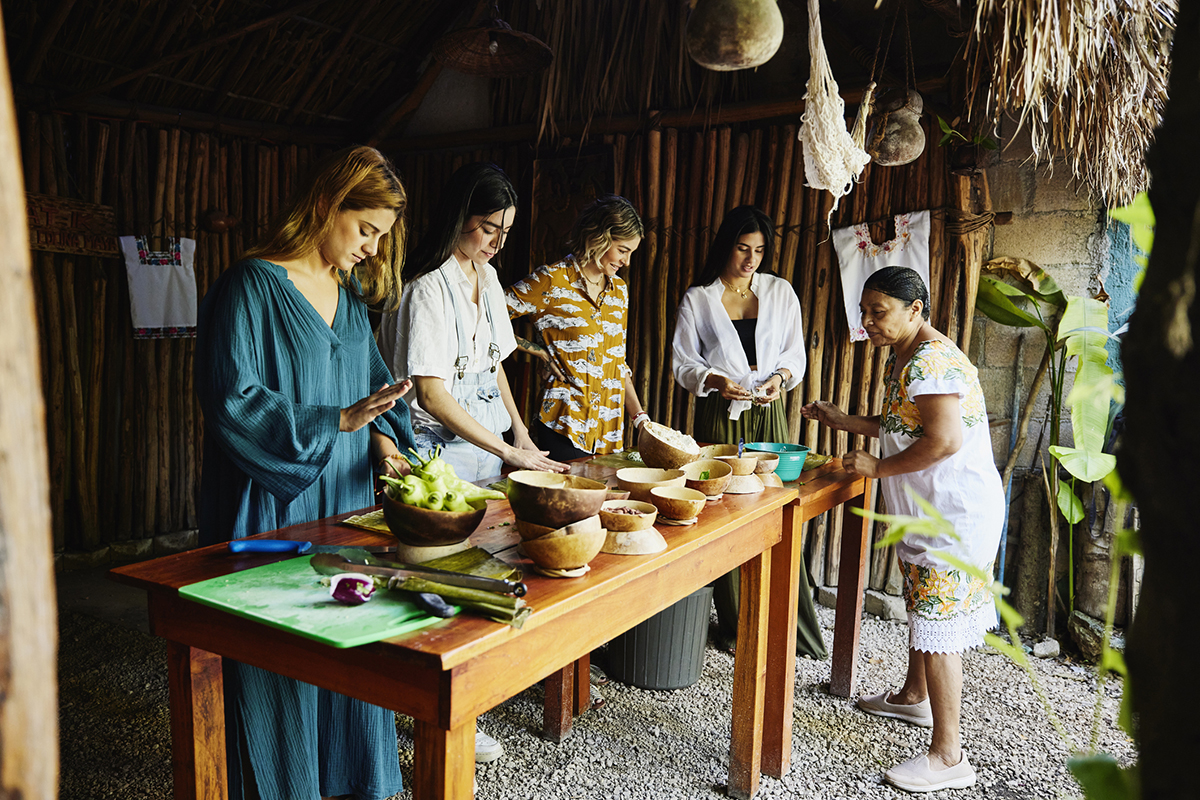
21. Shop local
It might be comforting to try and find your normal cuisine or visit only your favorite stores, but when you’re in a new place you must try the local cuisine at least once. Try to go to local shops instead of big supermarkets and branded stores. Get out of your comfort zone and you might discover your new favorite treat.
22. Catalog your experiences
Buy a journal. Writing down the smallest details of your day might sound boring, but you’ll love those specific details when you look back on your memories. Whether you like to write about the rollercoaster of emotions you feel going somewhere new or just the type of sandwich you ate, writing down a few details every day will bring back treasured memories.
Your memories will last a lifetime, but more so if you take pictures. Make sure to take pictures with the people you meet. You’ll be happy you have them when you part ways.
23. Skip tourist traps
It might be enticing to hit the Eiffel Tower or go on a safari but my number one tip is to try and avoid the crowds as much as possible. Popular attractions have long lines and you might end up waiting hours. Have the confidence to skip those tourist traps if you want to. It’s your solo trip, after all. (Of course, it’s fine if you want to go to the Eiffel Tower, but explore the less crowded areas as well.)
24. Go on a spontaneous adventure
Whether you take a random street without knowing where it goes or follow another traveler on their mission, make sure to add some spontaneity to your solo travel experience. Sometimes the best memories come out of random suggestions from strangers, casual turns, and one-way tickets.
Have you ever thought about a solo camping trip? Discover our solo camping tips for beginners.
25. Indulge your interests
When you travel alone, you’re in total control, so take your time and enjoy the places that interest you. Go back to a place twice if you want or skip all the attractions you had planned out. Allow yourself to spend time at the places or with the new people you enjoy the most.
Being alone for long periods of time can be daunting, but after a while, you might learn to love it. When you travel alone, you get to do whatever you want, whenever you want. So indulge yourself and you’ll have the most amazing trip of your life.
